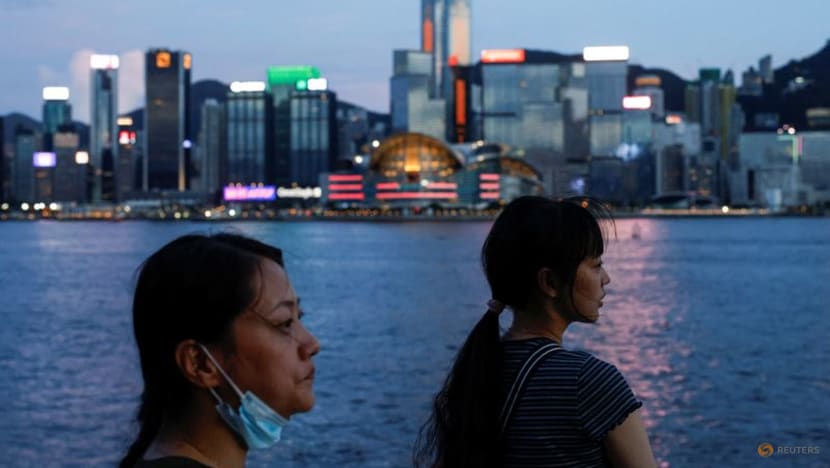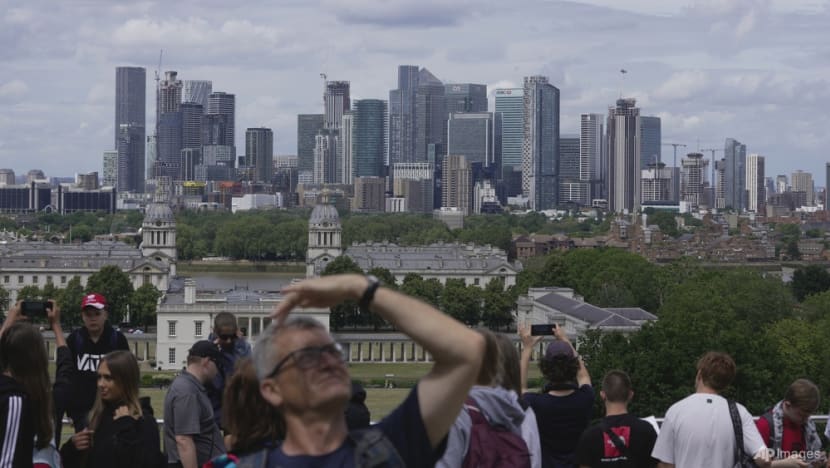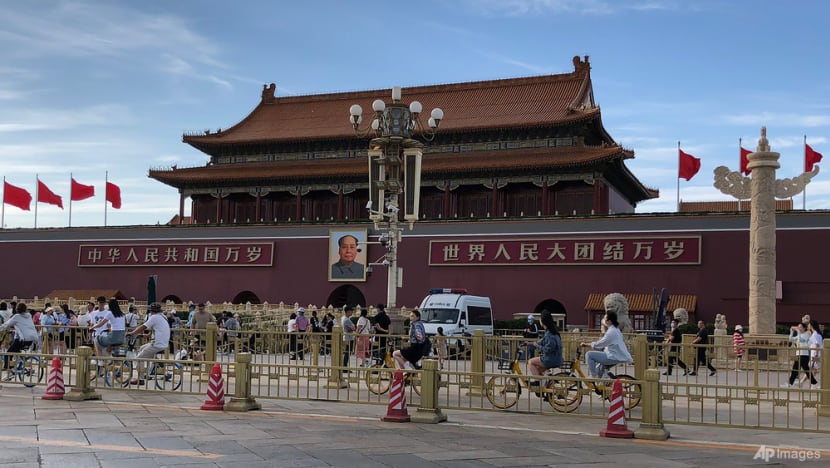Hong Kong market well positioned to benefit from China and wider global economic growth: HK stock exchange chief
The Hong Kong Exchanges and Clearing (HKEX) opened its first office in Singapore in 2017, the first offshore office set up outside of mainland China, as part of the exchange’s global push.

SINGAPORE: Hong Kong is well positioned to tap on the future growth of both the Chinese and wider international markets, the head of its stock exchange said on Monday (Jul 24).
Despite Hong Kong facing its lowest fundraising in 20 years in the first part of this year amid a tough global outlook, the exchange has seen a “fairly healthy number” of firms go public so far this year, said Hong Kong Exchanges and Clearing (HKEX) CEO Nicolas Aguzin.
Speaking to CNA’s Asia First, Mr Aguzin added that Hong Kong Chief Executive John Lee’s visit to Singapore is a “great opportunity to tell a little bit more of the Hong Kong story after so many years of the COVID impact and the inability for people to travel”.
The visit is his first one here since becoming the territory's new leader just over a year ago.
“There are so many areas where Hong Kong and Singapore and the broader ASEAN can actually work together,” said Mr Aguzin, who is here as part of the Hong Kong delegation.
“We want to make sure that we understand each other, we make the connections and we try to get more business flowing both ways in the future.”
PROMOTING THE HONG KONG MARKETPLACE
HKEX opened its first office in Singapore in 2017, and currently employs about 12 people here, including a sales team from the London Metals Exchange which it owns, said Mr Aguzin.
It was the first offshore office set up outside of mainland China, as part of the exchange’s internationalisation push.
Since then, HKEX has opened an office in New York, and has plans to open another in London, said Mr Aguzin.
“About half of the investors in our market are actually international investors. One critical thing that we want to do is to make sure that we are close to those international clients and investors that trade in our markets,” he said.
He added that the London office has been set up with all the necessary approvals granted, and an official opening ceremony should be held in the “next couple of months”.

Mr Aguzin said the exchange has historically had a “very good presence” from the United States and Europe markets, while about half of its international investors come from Asia, outside of China.
The Middle East is also a region that has been growing over the last few months, with the emergence of new economy companies, he added.
INTERNATIONALISATION OF THE RENMINBI
HKEX launched the Hong Kong Dollar (HKD)-Renminbi (RMB) Dual Counter Model and the Dual Counter Market Making Programme in its securities market on Jun 19 this year.
The renminbi, also called the yuan, is the currency of China.
The programme lets companies trade interchangeably between both currencies, in a bid to boost trading of Chinese stocks.
Following the launch, 24 Hong Kong-listed companies joined the programme.
“Eventually, pretty much every company will trade in both renminbi and Hong Kong dollars,” said Mr Aguzin. “It's not as big right now and until we get the southbound renminbi (from) the mainland investors.”
He said the changes will allow mainland Chinese investors to invest directly in Hong Kong using the yuan, giving the exchange a major boost.

“Today, that flow is about 30, 40 billion Hong Kong dollars. Every day, there's an exchange that is done. That should be in renminbi,” said Mr Aguzin.
“Once that happens, there should be a huge flow, which is going to position Hong Kong very well as a renminbi trading hub. It's going to help the renminbi’s internationalisation, and of course, it's going to give a lot more options to investors and to insurers.”
Mr Aguzin said that China started the year strongly with expectation of very high growth due to its reopening, and still believes that its growth will be “north of 5 per cent”.
“A third of the global growth is going to come from China. So whether it's 5 or 6 per cent, it's still a healthy level of growth,” he said.
“I would expect that as that growth starts being realised and companies start getting their earnings up, we're going to see some of that translate into better activity into our market.”
OUTLOOK ON HONG KONG
Despite a tough global outlook, Mr Aguzin sees bright signs for the Hong Kong market.
He noted that while total global capital raised in the first six months of this year fell by 40 per cent, the number of companies that went public in Hong Kong up until last Friday was 39.
“Now, offerings were a little bit smaller because the markets are a bit choppy, and therefore people prefer to wait and to time it a little bit more, or just to do a smaller offering,” he explained.
“In terms of capital raised, it's a single percentage digit below last year. So it's not that much, considering that globally it's 40 per cent down.”
The HKD-RMB Dual Counter Model and the Dual Counter Market Making Programme will also help connect China and the rest of the world.
“Now there will be this unique opportunity to have Chinese domestic investment that can invest in international companies that decide to list in Hong Kong. This is very unique. There's no other market that provides that strength,” said Mr Aguzin.
Mr Aguzin said the first half of the year has been a “stubborn” and “challenging” environment for Hong Kong stocks, with factors like high inflation and interest rates.
While it is exposed to such global developments, it is also uniquely positioned to benefit.
“It has this ability to be part of two systems in a way, and be part of China and be part of the international (system), which I think positions it very well,” said Mr Aguzin.














